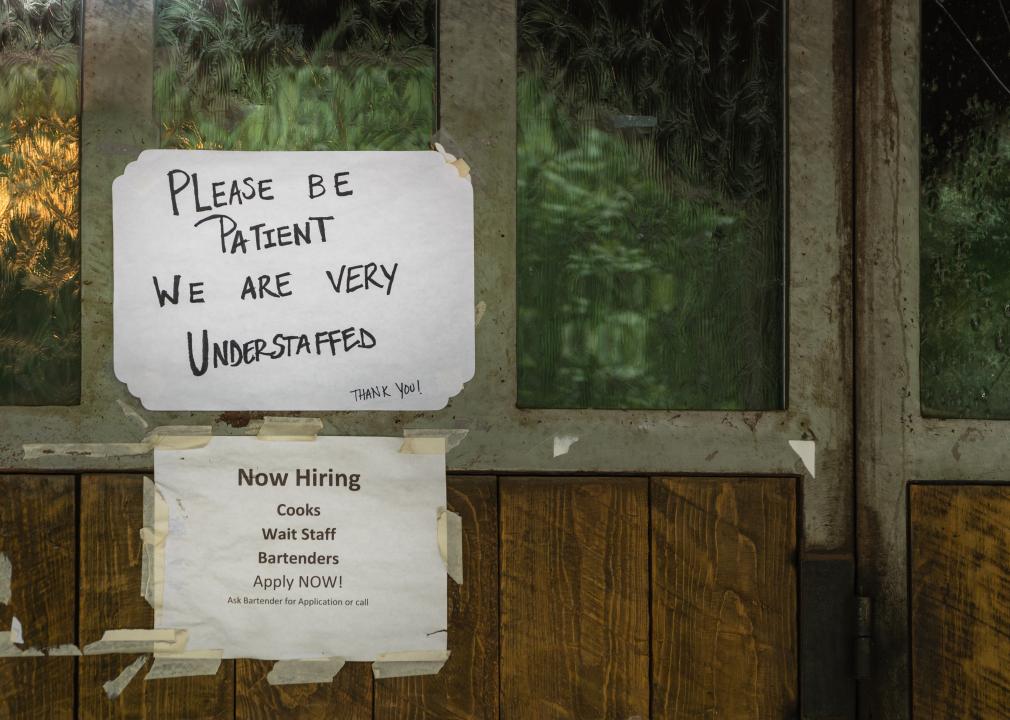What HR professionals worry about most, according to data
WorkTango analyzed data from the Society for Human Resource Management to explore the biggest concerns facing companies in the United States.
The American economy has undergone rapid and unprecedented changes in recent years. Many companies were forced to shut down their operations or go remote during the COVID-19 pandemic. With the pandemic in the rearview mirror, companies are learning to adapt to their new economic circumstances.
Some firms are pushing their workers to return to the office, while others have embraced either partial or full remote work. At the same time, many workers who moved during the pandemic are reluctant to return to their previous homes.
WorkTango analyzed data from the Society for Human Resource Management to determine the biggest concerns facing companies. The nonprofit group conducted a survey in early November 2023, asking some 2,000 human resources professionals in the United States what they thought the biggest challenges facing their companies were.
Some challenges companies face are long-running, such as fears of an economic slowdown or labor shortages; others are either new or have become more salient in recent years, such as managing their employees' mental health and adapting to inflation.
Inflation
By far the biggest concern for companies mentioned in the SHRM survey was inflation, with 36% of respondents pointing to price increases as a challenge. Prices have soared in recent years, with inflation hitting a 40-year high of 9.1% for the year ending in June 2022. However, inflation has been far more restrained this past year, at 3.3% year over year in May 2024, according to the BLS.
That is welcome news but still does nothing to offset the overall price increases of the past few years. Since January 2020, prices have increased by roughly 21%, and both consumers and companies are still working to adjust.
One area where inflation can cause problems for companies is worker pay. According to the SHRM survey, nearly 9 in 10 American workers said fair compensation should be the top priority for companies. However, just over a quarter of HR executives said they factor inflation into annual pay raises, and about one-third of employers are planning either no pay increases or pay increases of less than 3%. After considering inflation, workers at these organizations will be taking pay cuts in 2024.
Keeping their current workers is much cheaper for companies than hiring and training new ones. Inflation is waning, but companies are still going to have to work to try and keep up.
Mental health
About 66% of HR professionals who responded to the SHRM survey mentioned employee mental health as a major challenge for their companies. Among other issues, workers are still adjusting to a world of remote work, and people who work from home exclusively are more likely to report feeling lonely. Despite these concerns, only 35% of HR professionals said their companies effectively addressed these woes.
A recent survey from Gallup covering 160 countries provides some insights into what contributes to workers' mental well-being. The results are concerning: Gallup found that the number of people expressing negative emotions such as stress, sadness, or anxiety rose to its highest point since the firm began fielding the survey. For instance, at least 2 in 5 (41%) workers reported experiencing daily stress during 2023. One significant source of distress for workers was poor management; people working for poorly run organizations were almost 60% more likely to be stressed than those working for places with good management practices.
Labor shortages
Another major concern listed in the SHRM report is labor shortages, with 65% of HR professionals mentioning it as one of their firm's top woes. The survey provides detailed information on factors preventing companies from hiring their desired workers. Some potential employees want more flexible schedules or to work from home when their would-be employers want them to work in person. However, the most cited challenge was a lack of qualified candidates.
The report said HR departments are making efforts to boost recruitment in 2024, such as hiring from more diverse talent pools, including people with disabilities and the formerly incarcerated, using tests to identify quality candidates, and loosening their requirements regarding formal education.
Economic slowdown
Nearly 3 in 5 (58%) HR professionals in the SHRM report cited fears of an economic slowdown as one of the biggest concerns for their companies. Many objective economic indicators are strong. Bureau of Labor Statistics data placed the May 2024 national unemployment rate at 4%, considerably lower than the average of 5.8% experienced over the past 20 years.
Why worries about a potential economic downturn are so prevalent could be partially explained by subjective metrics, which have recently reflected bearishness. For instance, the small business uncertainty index published by the National Federation of Independent Business is at its highest level since November 2020.
Story editing by Mary Reardon. Additional editing by Kelly Glass. Copy editing by Paris Close. Photo selection by Clarese Moller.
This story originally appeared on WorkTango and was produced and distributed in partnership with Stacker Studio.
Comments










